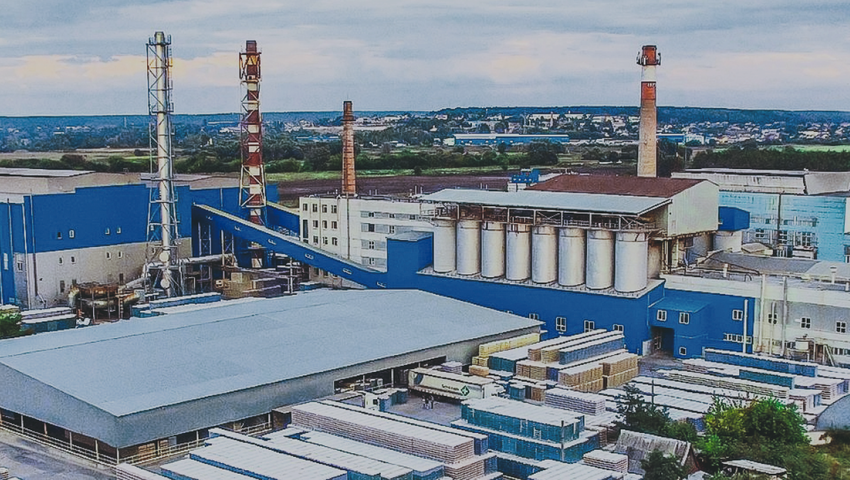
Interview
Vetropack, a factory under siege
The Ukrainian site of the Swiss glass packaging manufacturer has been heavily damaged in the war. Johann Reiter, CEO of the group, granted us an interview.
By Ludovic Chappex
Gostomel. Just months ago, very few people knew of this city, home to 18,000 residents located in Kiev Oblast. And then war broke out. This geostrategic access point near the capital – also home to a military base – was one of the first targets when Russian forces invaded Ukraine on 24 February. The level of destruction was extreme. Among the affected sites was a factory owned by Vetropack, a company that manufactures glass packaging for food and beverages. Production will not be restarting any time soon. Luckily, the Swiss company shut down its factory within the first few hours of the conflict.
And yet, Vetropack might still have to deal with the war. The company, founded in 1911, also has a production site in Chișinău, the capital of the Republic of Moldova, with 500 employees. Within western Moldova is Transnistria, a pro-Russian separatist territory. In the event that the situation worsens in the region, Vetropack is ready to suspend production. CEO Johann Reiter explains.
How has the situation at your Gostomel site in Ukraine evolved since the bombing on 24 February?
The factory is still closed. There is no change other than the fact that Russian troops have officially left the region. Since the start of the war, the most important thing for us has been to make sure our employees are safe. That’s our top priority. Thank God we were able to evacuate the factory before the strikes and that no one was killed. We’re in daily contact with our management team in Ukraine, who keep us informed of the situation. We’ll be able to start evaluating the exact scale of the damage to the factory, but we’re just at the beginning of that process.
How do you think your business has been affected by the closure of the factory?
Production at the Gostomel site makes up approximately 10% of our revenue. The majority goes to the Ukrainian market, and the rest to other European countries.
Do you have an insurance policy that covers this damage?
No, unfortunately not. There is no insurance policy that covers damage caused by bombing during wartime.
Could the Swiss government support the company financially, given the extraordinary nature of the situation? In the eurozone, there is talk of giving aid to the worst-affected companies.
We’re doing everything we can on that front. But it’s too early to talk about yet.
You also have a factory in Moldova. Is Russia’s retreat from western Ukraine reassuring?
We don’t think there’s a huge risk right now. Our Moldova factory continues production at maximum capacity. But the situation can change very quickly, as we’ve seen since the start of this crisis. We’re prepared for any possibility.
How are you handling increased energy costs, which strongly impact your industry?
Indeed, energy costs are a determining factor in our industry, but that’s also the case for the steel and aluminium sectors, for example. The price increases are not solely due to the war, because prices had already started rising last year. We’re explaining this to our clients as best we can. As a result, we’ve changed our business model: our prices are no longer set annually, but now quarterly or monthly, based on the changes in energy costs.
For all of these reasons, several financial analysts have significantly lowered their price target for Vetropack. What are your thoughts on this?
I would like to let analysts and our shareholders know that we have been active in our industry for more than 110 years and our balance sheets are solid, and that, in addition, the medium- and long-term projections for the glass packaging market are very promising. It’s the environmentally-friendly packaging of the future. Moreover, 55% of our raw material is made of recycled used glass. We are fully focused on the future of the group, as evidenced by the ongoing construction of a new production site in Italy, in Boffalora sopra Ticino, near Milan. This factory will be at the cutting edge of sustainable development and the circular economy.
